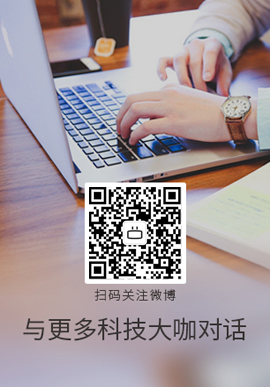|
我需要为纵向和横向使用不同的 xib 文件。我没有使用自动布局,但我使用的是 iOS6。 (如果您关心原因,请参阅 my previous question。)
我正在关注亚当对 this question 的回答用 amergin 的 initWithNib 名字技巧修改,用我自己的 iPhone/iPad 需要修改。这是我的代码:
-(void)willRotateToInterfaceOrientation UIInterfaceOrientation)toInterfaceOrientation duration UIInterfaceOrientation)toInterfaceOrientation duration NSTimeInterval)duration
{
[[NSBundle mainBundle] loadNibNamed:[self xibNameForDeviceAndRotation:toInterfaceOrientation]
owner: self
options: nil];
[self viewDidLoad];
}
- (NSString *) xibNameForDeviceAndRotation NSTimeInterval)duration
{
[[NSBundle mainBundle] loadNibNamed:[self xibNameForDeviceAndRotation:toInterfaceOrientation]
owner: self
options: nil];
[self viewDidLoad];
}
- (NSString *) xibNameForDeviceAndRotation UIInterfaceOrientation)toInterfaceOrientation
{
NSString *xibName ;
NSString *deviceName ;
if (UI_USER_INTERFACE_IDIOM() == UIUserInterfaceIdiomPad) {
deviceName = @"iPad";
} else {
deviceName = @"iPhone";
}
if( UIInterfaceOrientationIsLandscape(toInterfaceOrientation) )
{
xibName = [NSString stringWithFormat UIInterfaceOrientation)toInterfaceOrientation
{
NSString *xibName ;
NSString *deviceName ;
if (UI_USER_INTERFACE_IDIOM() == UIUserInterfaceIdiomPad) {
deviceName = @"iPad";
} else {
deviceName = @"iPhone";
}
if( UIInterfaceOrientationIsLandscape(toInterfaceOrientation) )
{
xibName = [NSString stringWithFormat "%@-Landscape", NSStringFromClass([self class])];
if([[NSBundle mainBundle] pathForResource:xibName ofType "%@-Landscape", NSStringFromClass([self class])];
if([[NSBundle mainBundle] pathForResource:xibName ofType "nib"] != nil) {
return xibName;
} else {
xibName = [NSString stringWithFormat "nib"] != nil) {
return xibName;
} else {
xibName = [NSString stringWithFormat "%@_%@-Landscape", NSStringFromClass([self class]), deviceName];
if([[NSBundle mainBundle] pathForResource:xibName ofType "%@_%@-Landscape", NSStringFromClass([self class]), deviceName];
if([[NSBundle mainBundle] pathForResource:xibName ofType "nib"] != nil) {
return xibName;
} else {
NSAssert(FALSE, @"Missing xib");
return nil;
}
}
} else {
xibName = [NSString stringWithFormat "nib"] != nil) {
return xibName;
} else {
NSAssert(FALSE, @"Missing xib");
return nil;
}
}
} else {
xibName = [NSString stringWithFormat "%@", NSStringFromClass([self class])];
if([[NSBundle mainBundle] pathForResource:xibName ofType "%@", NSStringFromClass([self class])];
if([[NSBundle mainBundle] pathForResource:xibName ofType "nib"] != nil) {
return xibName;
} else {
xibName = [NSString stringWithFormat "nib"] != nil) {
return xibName;
} else {
xibName = [NSString stringWithFormat "%@_%@", NSStringFromClass([self class]), deviceName];
if([[NSBundle mainBundle] pathForResource:xibName ofType "%@_%@", NSStringFromClass([self class]), deviceName];
if([[NSBundle mainBundle] pathForResource:xibName ofType "nib"] != nil) {
return xibName;
} else {
NSAssert(FALSE, @"Missing xib");
return nil;
}
}
}
} "nib"] != nil) {
return xibName;
} else {
NSAssert(FALSE, @"Missing xib");
return nil;
}
}
}
}
当然我在做:
- (BOOL) shouldAutorotate
{
return YES;
}
- (NSUInteger)supportedInterfaceOrientations {
return UIInterfaceOrientationMaskAll;
}
在我的 View Controller 中:
- (NSUInteger)application UIApplication *)application supportedInterfaceOrientationsForWindow UIApplication *)application supportedInterfaceOrientationsForWindow UIWindow *)window
{
return (UIInterfaceOrientationMaskPortrait | UIInterfaceOrientationMaskLandscapeLeft | UIInterfaceOrientationMaskLandscapeRight | UIInterfaceOrientationMaskPortraitUpsideDown);
} UIWindow *)window
{
return (UIInterfaceOrientationMaskPortrait | UIInterfaceOrientationMaskLandscapeLeft | UIInterfaceOrientationMaskLandscapeRight | UIInterfaceOrientationMaskPortraitUpsideDown);
}
在我的委托(delegate)中。
我有两个可能相关的问题。第一,简单的。我不倒转。我为 iPad 和 iPhone 在 xcode 中打开了所有正确的位。这可能是一个单独的问题,也可能是我的问题的核心。
真正的问题是,当我旋转到横向模式时,我的 xib 被替换,但 View 偏离了 90 度。
这是我的 2 xib 的样子。 (我给它们涂上了花哨的颜色,所以你可以看到它们是不同的。)
 和 和 
当我运行它时(最初在横向模式下),您可以看到横向 xib 是正确的。

当我旋转到纵向时它也是正确的

但是当我旋转回横向时,xib 被替换,但 View 偏离了 90 度。

这里有什么问题?
Best Answer-推荐答案
我可能一直在走与保罗·塞尚去年相同的道路。不确定他是否尝试过这个,但我解决了最初的问题(在这个问题中说明),只是让我的根 Controller 成为导航 Controller 而不是我的 View Controller 类。由于我使用的是“空项目”模板和 XIB 文件,这意味着更改正常:
self.viewController = [[ViewController alloc] initWithNibName "ViewController" bundle:nil];
self.window.rootViewController = self.viewController; "ViewController" bundle:nil];
self.window.rootViewController = self.viewController;
在 AppDelegate.m 中,改为:
self.viewController = [[ViewController alloc] initWithNibName "ViewController" bundle:nil];
UINavigationController *navigationController = [[UINavigationController alloc] initWithRootViewController:self.viewController];
navigationController.navigationBar.hidden = YES;
self.window.rootViewController = navigationController; "ViewController" bundle:nil];
UINavigationController *navigationController = [[UINavigationController alloc] initWithRootViewController:self.viewController];
navigationController.navigationBar.hidden = YES;
self.window.rootViewController = navigationController;
也就是说,我刚刚创建了一个通用 UINavigationController 并将其设置为 Root View Controller 。
我不确定这是否会导致其他问题,并且可能有一种方法可以弄清楚(也许您需要源代码)UINavigationController 做了哪些 UIViewController 没有。可以像在正确的地方调用一个额外的 setNeedsLayout 类型一样简单。如果我弄明白了,我会为 future 的读者编辑这个答案。
归功于 Sakti 对 Easiest way to support multiple orientations? How do I load a custom NIB when the application is in Landscape? 的评论我第一次阅读它们时不应该忽略它们:
i added the view controller to navigation controller and presented it
which made it work as intended
编辑:在示例代码中添加了额外的行以隐藏导航栏,因为大多数关注此问题的人都不希望这样做。
关于ios - iOS6下多个xib旋转的问题,我们在Stack Overflow上找到一个类似的问题:
https://stackoverflow.com/questions/17435397/
|  客服电话
客服电话
 APP下载
APP下载

 官方微信
官方微信

















 UIInterfaceOrientation)toInterfaceOrientation duration
UIInterfaceOrientation)toInterfaceOrientation duration "%@-Landscape", NSStringFromClass([self class])];
if([[NSBundle mainBundle] pathForResource:xibName ofType
"%@-Landscape", NSStringFromClass([self class])];
if([[NSBundle mainBundle] pathForResource:xibName ofType 和
和 




